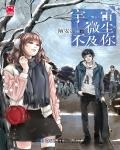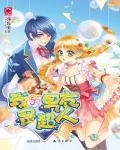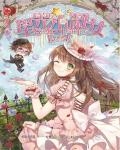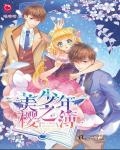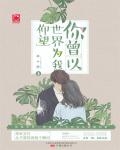Chapter 145 It’s Okay to Be Weak Occasionally
The most difficult thing to collect on the battlefield is this pile of "tin cans".
They stood in their positions, still in their original formation, their armor so lifelike that they looked like a row of living statues.
The soldiers first used torches to melt the ice, and then carefully pried open the armor with their weapons.
But no matter how careful they were, they could not keep their comrades' bodies intact.
The heavily armored warhorses charged forward, like chariots from later times. Their flesh and blood, even protected by their armor, were nearly shattered by the powerful impact.
At this time, they are usually still alive.
Even though their bodies inside the armor had become a mass of flesh and blood beyond recognition, they still held up and supported their shields, creating a small safe space for their comrades behind them so that they could fight the enemy.
Although it was the first month of the lunar year, the weather near Peking wasn't cold enough to completely freeze people in just a few hours. Their bodies were a mixture of flesh and bones, ice fragments, and dark blood, which stained the hands of the soldiers who collected them red.
"Not all the warriors' remains were collected. Most were left in the wilderness. That's why there are so many terrifying legends about ancient battlefields."
Chen Biao wanted to give the hand warmer to Yan Qian and take part in the burial. Before Yan Qian could say anything, the soldiers hurriedly asked Chen Biao to take the hand warmer back. They were also worried about Chen Biao's health.
Chen Biao had no choice but to continue holding the hand warmer and using words to guide the teaching assistants and students.
"Only in a battle like this, where we only have to fight one, do we have time to bury the dead. The burial of ordinary soldiers is simple: they are cremated on the spot, and the ashes and personal belongings are then taken home by their fellow villagers."
“Not everyone has fellow villagers, so some ashes can only be buried locally.”
"If we meet a good general, we can hold a memorial service for them. But most of the time, their names are lost on the battlefield and no one knows them."
Chen Biao said these words slowly, and some soldiers began to wipe their tears again.
The two teaching assistants and the students pried open the armor with the ordinary soldiers with trembling hands, picking out broken ice chips and flesh, not knowing whether it was because of the cold.
Chen Biao looked into the distance.
In front of the shield soldiers' column is the battlefield after the cavalry's charge.
There are the corpses of enemies and the corpses of comrades.
Nearest him lay the corpse of a heavily armored horse, lying on the ground. Beside the corpse lay four Ming infantrymen.
An infantryman's sword got stuck in his horse's leg, and the horse trampled through his stomach. His expression was distorted, and he must have been in great pain when he died. But his hand was tightly gripping the sword, maintaining a posture of exerting force;
One infantryman was missing half his head, presumably cut off by a mounted cavalryman. He likely wasn't dead yet, but he dropped his weapon and clung to his horse's hind legs before dying.
One footman clutched the fallen cavalryman's neck, while another stabbed his sword into the cavalryman's chest. They both perished along with the brave cavalryman.
The cold weather preserved the bodies' movements and expressions, allowing later generations to discern the stories of their last moments.
Chen Biao told this story to his students.
Yan Qianben was standing behind Chen Biao and couldn't help himself when he saw this. He saw that his own soldiers were all around him and Chen Biao would not be in danger, so he rolled up his sleeves and helped the soldiers collect the body.
Judging from Yan Qian's movements, he is already very skilled at this.
Deng Yu and Zhao Desheng were also working. They were limping and slightly injured, so they did not pursue the enemy, but stayed behind to clean up the battlefield.
"I was wrong." Liu Lian was the first one who couldn't help but kowtowed towards the battlefield.
He gnashed his teeth, feeling both ashamed and angry. He felt ashamed for his comrades on the battlefield, and angry at the enemy.
Chen Biao only asked them to help with the burials and bury the Ming soldiers on the battlefield with their own hands, and they knew they were extremely wrong.
Respecting the enemy generals? That was certainly the right thing to do, but it wasn't something they should do, nor was it the right time to do it.
Kuyuk Timur was indeed a hero, but were those Ming soldiers who, even with their bodies shattered, still held their shields tightly? Were those Ming soldiers who, with only three or five men, saved the lives of the heavy cavalry heroes? Were those soldiers who died on this battlefield heroes?
The world only records the bravery of generals on both sides, and then calls them heroes. To show their respect for heroes, the lords of each faction might occasionally give them a lavish burial and write epitaphs for them.
Few people look down at the ordinary soldiers on the battlefield.
Even if they saw them, they would only sigh, "Poor bones by the Wuding River," and say that they were pitiful.
Because of their humble status, ordinary soldiers will only make those who sigh think they are pitiful.
But when these lowly soldiers died in battle, was the only word that could be described as "pitiful"?
Chen Biao, who comes from the modern era, disagrees, because he has seen the Monument to the People's Heroes, visited hero memorials large and small, and watched planes escort heroes' ashes back to their hometowns.
Regardless of their respective positions, the soldiers who founded the Ming Dynasty fought against a tyrannical ruler. They did not stir up the ashes of a chaotic world in a struggle for power, but rather the blazing flame that ended it.
If these nobles and second-generation officials fail to see this clearly, if they, like most people of this era, ignore these ordinary soldiers who clearly have ideals and ambitions, then after they take control of the army, this brilliant flame will quickly turn into dim ashes.
Chen Biao didn't want this to happen, so he insisted on getting out of bed and teaching his students.
But he didn't know whether such teaching would be of any use. He just thought that doing so would make him feel better, so he acted accordingly.
"No need to kowtow, just bury him quickly," Chen Biao said. "I don't blame you. Your previous thinking was the mainstream thinking in this world. The enemy's general deserves a more honorable burial than one's own soldiers. This is all recorded in history books. On the contrary, what I am saying to you now is contrary to common sense."
"But as I said before, what's written in history books is correct, and the principles you read in them are all correct. What I'm doing and saying now is contrary to common sense, and that's wrong." Chen Biao raised his chin slightly and said arrogantly, "So what? Do I have to do what's right? I'm just acting on impulse. Don't agree? Go and complain to the lord."
Chen Biao made a witty remark to dispel the awkward atmosphere.
In this era, the status of people was seriously unequal. Even if students and teaching assistants quarreled with the generals, if they were willing to come to the battlefield to personally collect the bodies of ordinary soldiers and kowtow to admit their mistakes, the soldiers would not only not bear grudges, but would be deeply moved and think that these people were good people.
If today's events were to get out, they would be able to win over the hearts of their soldiers more easily when they take charge of the army in the future.
It’s a good thing, it’s all good.
Chen Biao's mood became increasingly heavy, and he did not feel relieved at all because the problem was solved.
Chen Biao knew he couldn't get tired, so after teaching his students, he returned to his tent to catch up on some sleep. Before going to sleep, he ordered an investigation into the camp where Kuyuk Timur had been stationed, to try to find the messenger's body.
According to the captured cavalry, the messenger was buried on the spot. While the snow was light and the ground was not frozen solid, they could quickly retrieve the messenger.
Chen Biao fell asleep again. When he woke up, it was already dawn. He had slept soundly all night and finally regained his energy.
When Chen Biao stepped out of the tent, none of the students who were "forced" back by the generals to rest had slept yet, and their eyes were red and swollen.
It wasn't just exhaustion; they had obviously cried. Even Zhou Ji, who was usually indifferent to outsiders, had tear marks on his face.
Seeing that they had just cried, Chen Biao asked, "Has the body of the messenger been found?"
If you were crying for the burial, your tears should have dried up by now.
Yan Qian, who had also stayed up all night, hesitated, not knowing whether he should say it.
But it was impossible to hide this from Chen Biao, so he said in a low voice: "We found it. We also found a few sentries."
Chen Biao was stunned for a moment, then hugged the hand warmer tightly in his arms: "Take me to see it."
Yan Qian led the way silently.
Most of the bodies had been disposed of, and Chen Biao could not see the pain they had suffered. However, these people would be recorded in the archives. Liu Lian and Zhu Tongzheng used their body heat to melt the ink on the inkstone to record for the messengers and sentries.
The messenger was beheaded with just one blow, and he probably didn't suffer much pain before his death; the sentinels who were sent out to gather information also served as spies, and after they were caught, they were all treated inhumanely.
Chen Biao didn’t know that the spies and sentries in the middle and late Ming Dynasty were also called “Yebushou”.
"Yebushou" is described in novels and film and television dramas as a "special forces soldier" fighting against the Later Jin in Liaodong, but the real situation is not so "romantic".
When Zhu Yuanzhang established the feudal lords, his original intention was not to divide the country. He established the "Eight Great Frontier Kings" to appoint the feudal lords as generals of the feudal lords.
Like many later authors of ancient hegemony novels that came up with "excellent ideas" to deal with the princes, the eight great kings of the frontier were stationed in important border towns. Zhu Yuanzhang told them that if they wanted to expand the territory of their vassal states, they should expand on the grasslands.
Zhu Yuanzhang's policy was, "If I conquer you, I will not do it haphazardly. I will build the city step by step, slowly and steadily." Zhu Yuanzhang ordered the troops under the King of Sai to graze horses, milk cows, and eat meat, just like the Mongols. If they ran out of supplies, they would plunder the Mongols.
He did not build the Great Wall, but instead stationed the King of Sai along the border from northeast to northwest, forming a new Great Wall. From now on, the Mongols will no longer be able to plunder the Central Plains from the south, but we will plunder them.
However, the military power of the Sai Kings made the imperial power unstable. After Zhu Di, the Prince of Yan, one of the Sai Kings, ascended the throne, he immediately abolished the Sai Kings and moved all the vassal kings inland to "support the Zhus."
Zhu Di also knew that this was not a long-term solution. So he decided to personally lead the Northern Expedition, defeat all the Mongols, drive them further away, and complete the task that Zhu Yuanzhang had set for generations of the kings of the Frontier.
After he finished, he would consider how to deal with the royal family - whether to enfeoff them far away, or not to enfeoff them at all.
Unfortunately, Zhu Di fought for the Ming Dynasty all his life and died on the way to the Northern Expedition.
Later, Crown Prince Zhu Gaochi died of illness after only one year on the throne; Zhu Zhanji also died young, having been emperor for only nine years. Neither of them had the time or energy to deal with the affairs of the vassal kings.
Later, there was an emperor who caused the famous Battle of Tumu.
The first few generations of emperors did not solve the problem of the vassal kings, and the problems of the royal family became so serious that no one dared to solve them.
After the Battle of Tumu, the Ming Dynasty switched from attacking to defending against the grassland peoples and rebuilt the Great Wall.
Every year, small bands of less than a hundred people from the grasslands would come to plunder, with peaks reaching over a hundred. Lighting beacons on the Great Wall would allow frontier commanders to provide timely support and eliminate these bands, preventing further raids.
The sentinels and spies outside and on the Great Wall who gathered information about looting teams and lit beacon fires were called "Night Guards".
These were the "special forces" and "scouts" who had the most dangerous missions in the Ming Dynasty.
There is no name of "Yebushou" now, but there are people who work as scouts for "Yebushou".
After being treated inhumanely, the bodies of these scouts were hung in the camp as a public display and demonstration.
Chen Biao didn't know what "no harvest at night" meant, but he knew that these scouts were carefully trained by him and sent out to spy on the enemy.
Without these scouts, he would not have been able to give timely commands.
The so-called "foresight" is actually just the compilation and analysis of intelligence. The people who collect intelligence are the ashes in front of us.
Chen Biao stretched out his hand: "Give it to me."
Liu Lian handed over the record book with trembling hands.
Chen Biao read the words written on the white paper. Eyes gouged out, stomach disemboweled, limbs severed… so many cruel words pierced his eyes. From ancient times to the present, this was the fate of spies caught.
Chen Biao stroked the ink on the paper and murmured, "Liu Lian, Zhu Tong, do you know what is preventing me from expanding the territory for the emperor and achieving unprecedented achievements?"
He returned the booklet to Liu Lian and turned to leave.
Liu Lian held the book in his hand for a long time without moving.
Chen Biao first returned to the tent and soon returned to the city of Peking.
The battle was over, and he still had a lot to do besides cleaning up the battlefield.
This battle consumed a great deal of supplies, putting Peking's reserves at risk. The Ming army completely annihilated the Mongol heavy cavalry, but suffered nearly 10,000 casualties. Chen Biao could not afford to let so many soldiers die in battle and then let the people starve to death.
The battlefield cleanup could not be completed within a few days, so the students volunteered to stay on the battlefield and Chen Biao did not urge them to return.
Chen Chong and Chen Tan followed Chen Biao back and supervised that Chen Biao got enough sleep, ate regularly, and took medicine on time every day.
Chen Chong's expression became more and more serious; Chen Tan's chin became more and more raised. Chen Tan was very proud of being able to supervise his elder brother to do things.
Chen Gou'er and Chen Mao'er didn't know what had happened, they just saw that their eldest brother was becoming more and more silent. After discussing it, they started to act cute and coquettish in front of Chen Biao every day to make him smile.
With a younger brother who is truly a funny guy and another younger brother who pretends to be a funny guy just to make him happy , Chen Biao finally smiles more often.
But his former liveliness and free-spiritedness had completely disappeared, and his whole temperament had become very stable and profound, as if he had grown up.
Until one day, he got up and saw his parents sitting at the head of his bed looking at him.
Chen Biao was almost scared to death.
"Biao'er, you've worked hard." Ma Xiuying hugged Chen Biao in her arms and cried with sobs.
Chen Biao: "Ah, Mom? Why are you here? Don't cry, don't cry, I'm fine! Dad... Dad, don't cry too!!!!"
Zhu Yuanzhang was crying and his eyes were swollen like peaches. He cried even harder than Ma Xiuying.
Chen Biao originally wanted his father to persuade his mother, but since his father was like this, he would probably have to wait until his mother calmed down before he could persuade him instead.
After Ma Xiuying finished crying while hugging Chen Biao, Zhu Yuanzhang also hugged Chen Biao and cried.
Chen Biao took turns persuading his parents, and as he did so, he also burst into tears.
The three of them hugged each other and cried. Chen Chong and Chen Chong came in from the door, holding Chen Gou'er and Chen Mao'er and handing them handkerchiefs to wipe their faces.
When Zhu Yuanzhang learned that Kuyuk Timur had "disappeared", he was not very panicked.
As for defending a city, Biao'er had experienced it once before. This time they were well prepared, and Beiping City was strong. Biao'er waited comfortably in Beiping City for Kuyuk Timur to attack the city. He sent people to directly attack Shangdu and Yingchang, forcing Kuyuk Timur to return for assistance.
Perfect!
When the military report arrived, Zhu Yuanzhang was stunned.
Not only did his own Biaoer lead the army to attack and fight a great battle with Kuyuk Timur, but Biaoer also personally went to the battlefield to fight the generals?
Zhu Yuanzhang immediately cursed Chang Yuchun, saying that it was you, a jerk, who started the evil trend of commanders fighting against each other!
Chang Yuchun: Huh? Well... well, it's my fault.
After Zhu Yuanzhang finished his scolding, he felt both worried and elated. By the time the military report reached him, Chen Biao's battle was already over. Zhu Yuanzhang wasn't "chasing the battle," so there was no need to worry.
Hey! How come my Biaoer is so capable! At his age, he can fight Kuyuk Timur and force him to retreat!
Obviously, Chen Biao, Yan Qian, Xue Xian and Zhao Desheng worked together to kill indiscriminately. Most of the time, Chen Biao was responsible for the fighting. In Zhu Yuanzhang's eyes, Chen Biao led Yan Qian, Xue Xian and Zhao Desheng to kill indiscriminately. Chen Biao was responsible for the killing, and the other three were responsible for shouting and cheering.
After Zhu Yuanzhang scolded Chang Yuchun, he read the military newspaper while shaking his head, like a scholar who had read a masterpiece.
When he saw Chen Huoxing blocking Kuyuk Timur who was trying to escape by crossing the river to the south, and Kuyuk Timur committing suicide in despair, he slammed the table and cheered loudly.
Chang Yuchun quietly stretched his head to take a look and couldn't help but applaud.
Even though His Royal Highness the Crown Prince is a veteran who has been through many battles, he couldn't help but admire his move.
But soon, the two of them could no longer laugh.
Chang Yuchun regretted very much why he stayed when the military newspaper arrived.
Xu Da, who said he had a stomachache and ran away quickly, obviously expected this scene!
The second half of the military report was a letter of apology written by Chen Biao himself.
Chen Biao first described the verbal conflict between the students and the generals, talked about his own rebellious ideas, and said that he knew he should show respect for Kuyuk Timur as a hero in order to win people's hearts, but he couldn't do it. He acted so impulsively that he failed to live up to Zhu Yuanzhang's expectations and did not set a good example for the students.
Chen Biao then listed the losses of this war.
The loss of lives, the loss of money and grain, every number was written by Chen Biao himself.
After seeing his parents, Chen Biao's crying was similar to the last paragraph of his letter of apology to Zhu Yuanzhang.
"I know that rationally and strategically I should attack. That organized heavy cavalry unit is a major threat to the Ming Dynasty, and Kuyuk Timur is an even greater threat to the Ming Dynasty. The worst-case scenario is that Kuyuk Timur returns to the grasslands with the heavy cavalry, so that he can train more heavy cavalry..."
Heavy cavalry is a well-trained professional military force. Not everyone who can ride a horse can be a heavy cavalryman.
If this well-trained heavy cavalry returned to the grassland, everyone of them could become an instructor or a general.
The armor worn by the heavy cavalry was also quite technologically advanced. If they could return fully armed, the craftsmen plundered by the remaining Yuan Dynasty could use it to research and develop new heavy cavalry armor.
Kuyuk Timur returned to the grassland. If the Yuan prince began to trust Kuyuk Timur after suffering a series of blows, the Ming Dynasty would encounter a formidable opponent who had matured in both mind and ability.
If the heavy cavalry returns to the grassland, the remaining Yuan Dynasty will be able to train a new professional heavy cavalry army in a short period of time.
Chen Biao chose to attack in order to keep Kuyuk Timur and this heavy cavalry, and absolutely not let them return to the grassland.
The worst outcome would be that Kuyuk Timur would return to the grassland, and this heavy cavalry must stay!
Chen Biao knew rationally that his decision was correct, and rationally he knew...
But if he had chosen to stay in the city, so many Ming soldiers would not have died, not even a single person would have died!
"I know I was right, but I still regret it so much. If only I hadn't attacked, if only I had defended the city, they wouldn't have died, none of them would have died..."
Chen Biao ignored the fact that his younger brothers were still there and that this would be embarrassing for him as an older brother. He still spoke irrational words of regret in his parents' arms.
Yes, if Kuyuk Timur and his heavy cavalry were allowed to return to the grassland, more people would die in the future of the Ming Dynasty.
But these people did not die now, did not die in front of him, did not die in his decision, and did not die tragically because of his orders and commands, so he does not have to bear these responsibilities.
Chen Biao didn't want to take these responsibilities.
He clearly only needed to defend the city, and clearly could have given these heavy responsibilities to someone else. Why did he try to be so aggressive? Why did he let the soldiers he knew fight this bitter battle?!
Even though he knew that he would win the battle, even though he knew that this victory would be a miraculous victory in the eyes of others, Chen Biao still regretted it.
Zhu Yuanzhang and Ma Xiuying hugged their son tightly, crying so hard that they couldn't utter any words of comfort.
They knew that although Chen Biao was regretful and in pain now, he would still make the same choice if he could go back to the past.
If the same thing happens again in the future, Chen Biao will still become the "cold and rational" general he now calls himself and make the same choice.
Just like Zhu Yuanzhang had made many choices, it was not that it was not painful, but he had to do it.
Zhu Yuanzhang once regarded soldiers as lives because he was also a soldier.
Now he no longer watches it.
He thought he had become numb, but when he saw Chen Biao crying, he realized that he was not numb, he just didn't dare to think or see.
Because he had to bear so many lives, the burden was too heavy. Only by letting go of everything, becoming cold and ruthless, and treating all lives as numbers like money and grain, could he make a decision.
Zhu Yuanzhang himself was like this, but he didn't know how to teach Chen Biao.
Because his child is calmer and more rational than him, and more kind and soft-hearted than him.
"Don't cry, don't cry. If you don't want to do this, then don't do it. Let's go home. You are still young and shouldn't be responsible for so many things." Zhu Yuanzhang made up his mind, "Go home! Don't you want to go out to sea to do business? Let's go out to sea to do business in the future!"
Chen Biao raised his tearful face: "Really?"
Zhu Yuanzhang said firmly: "Really!"
Chen Biao sniffed and wiped his face with Zhu Yuanzhang's sleeve. "Let's talk about it later. I have to help the people of Beiping through the winter and the spring plowing first, to see if we can grow enough to be self-sufficient next year. I still haven't done the memorial service I promised the soldiers, and there are also post-war pensions and assistance for the disabled..."
Chen Biao counted the things one by one, and there was deep helplessness in the eyes of Zhu Yuanzhang and Ma Xiuying.
Listening to Chen Biao's sobbing and the things he would do in the future, his brothers all looked gloomy. But even the two youngest brothers, Gou'er and Mao'er, had a hint of determination in their gloomy eyes.

